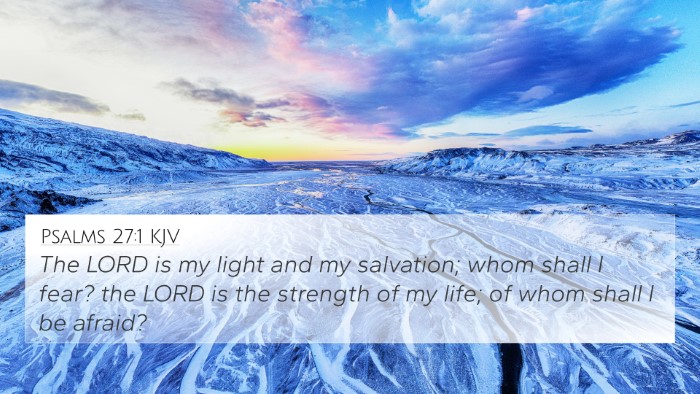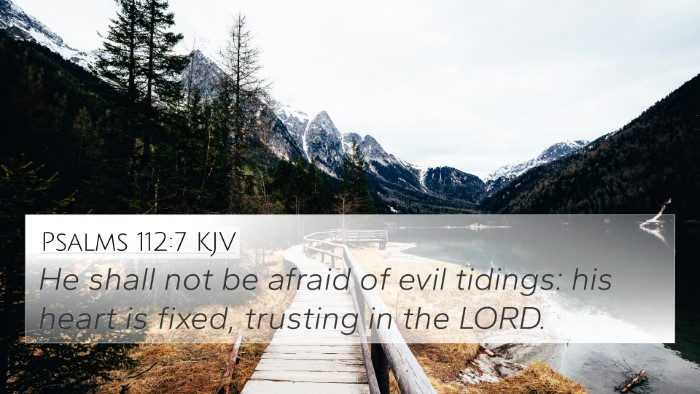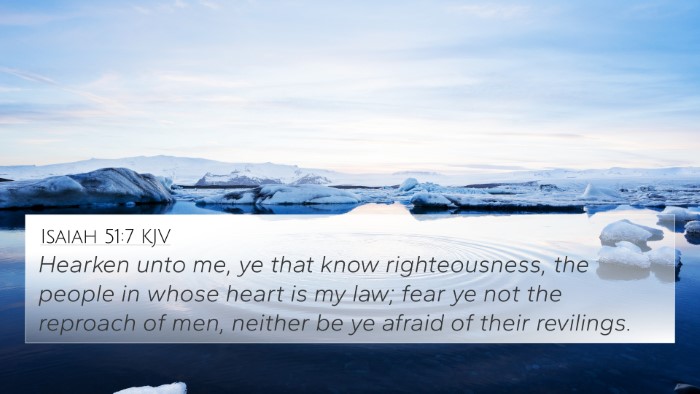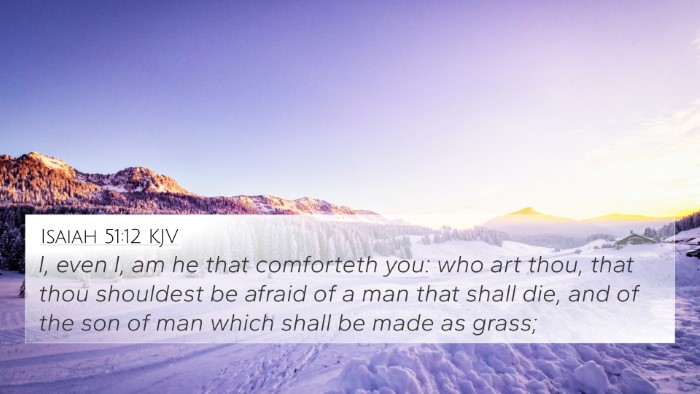Understanding Psalms 56:11
Psalms 56:11 states, "In God have I put my trust: I will not be afraid what man can do unto me." This verse encapsulates a profound declaration of faith and confidence in God amid fear and adversities. Below we analyze its meaning through insights drawn from notable public domain commentaries.
Overview of Key Themes
- Trust in God: The verse emphasizes a believer's trust in God, contrasting human fear with divine assurance.
- Confronting Fear: It highlights the struggle against fear and anxiety, showcasing faith as a source of strength.
- Human Limitations: It reflects on the limitations of human authority and capability in the face of God's omnipotence.
Commentary Insights
Matthew Henry's Commentary
Matthew Henry elaborates that trusting in God provides a foundation to dismiss fears that plague the faithful. He emphasizes that the psalmist, amidst trials, resolves not to fear consequences from hostile forces, relying on God's faithfulness.
Albert Barnes' Commentary
Albert Barnes highlights the essence of self-confident trust in God. He interprets "man" as representing all human threats, and asserts that recognizing divine support leads to inner peace and comfort, enabling believers to overcome their fears regardless of external circumstances.
Adam Clarke's Commentary
Adam Clarke interprets this verse as an expression of unwavering faith. He discusses how placing trust in God dispels the paralyzing nature of fear by reminding believers of God's sovereign power over all earthly matters.
Cross-References
This verse relates to several others in the Bible, enhancing the understanding of its themes:
- Proverbs 29:25 - "The fear of man brings a snare, but whoever trusts in the Lord is safe."
- Isaiah 12:2 - "Behold, God is my salvation; I will trust, and will not be afraid."
- Hebrews 13:6 - "So we can confidently say, 'The Lord is my helper; I will not fear; what can man do to me?'"
- 1 Peter 3:14 - "But even if you should suffer for righteousness' sake, you will be blessed. Have no fear of them, nor be troubled."
- Romans 8:31 - "What then shall we say to these things? If God is for us, who can be against us?"
- 2 Timothy 1:7 - "For God gave us a spirit not of fear but of power and love and self-control."
- Psalms 118:6 - "The Lord is on my side; I will not fear. What can man do to me?"
Thematic Connections
The themes present in Psalms 56:11 resonate with broader biblical concepts regarding fear and trust:
- Faith vs. Fear: This theme threads through multiple scriptures, advocating for reliance on God's strength.
- Divine Protection: Numerous verses discuss God's role as a protector against human threats.
- Courage through Faith: Each mentioned verse underlines how faith ushers in courage, dismissing fear.
Tools for Bible Cross-Referencing
For those seeking to deepen their understanding of biblical texts, employing tools for cross-referencing can provide clarity and connections across the scriptures:
- Bible Concordance: A resource that lists words found in the Bible and helps trace their occurrences.
- Bible Cross-Reference Guide: This guide offers insights on how verses interact and illuminate one another.
- Cross-Reference Bible Study: Engaging in comparative analysis brings depth to scripture interpretation.
- Bible Chain References: Techniques used to establish thematic links among different passages.
- Bible Reference Resources: Various texts and software can assist in navigating scriptural connections.
Inter-Biblical Dialogue
This verse does not stand alone; it engages in a conversation with others across the canon. An example of this is the dialogue between Old Testament assurances and New Testament teachings. The interplay is vital for understanding God's enduring nature and the consistency of His word:
- Understanding Fear: Both Old and New Testaments approach fear as a central theme. By cross-referencing these elements, one can achieve a holistic understanding of faith.
- Faith's Evolution: Tracing how faith and trust in God transforms from pre-Christ to post-Christ reveals the continuity and fulfillment found in scripture.
Closing Thoughts
Psalms 56:11 serves as a profound reminder to trust in God amidst life's uncertainties. The combined insights from various commentaries help illuminate its meaning. Furthermore, utilizing methods of cross-referencing enhances scriptural understanding and enriches one's spiritual journey.






